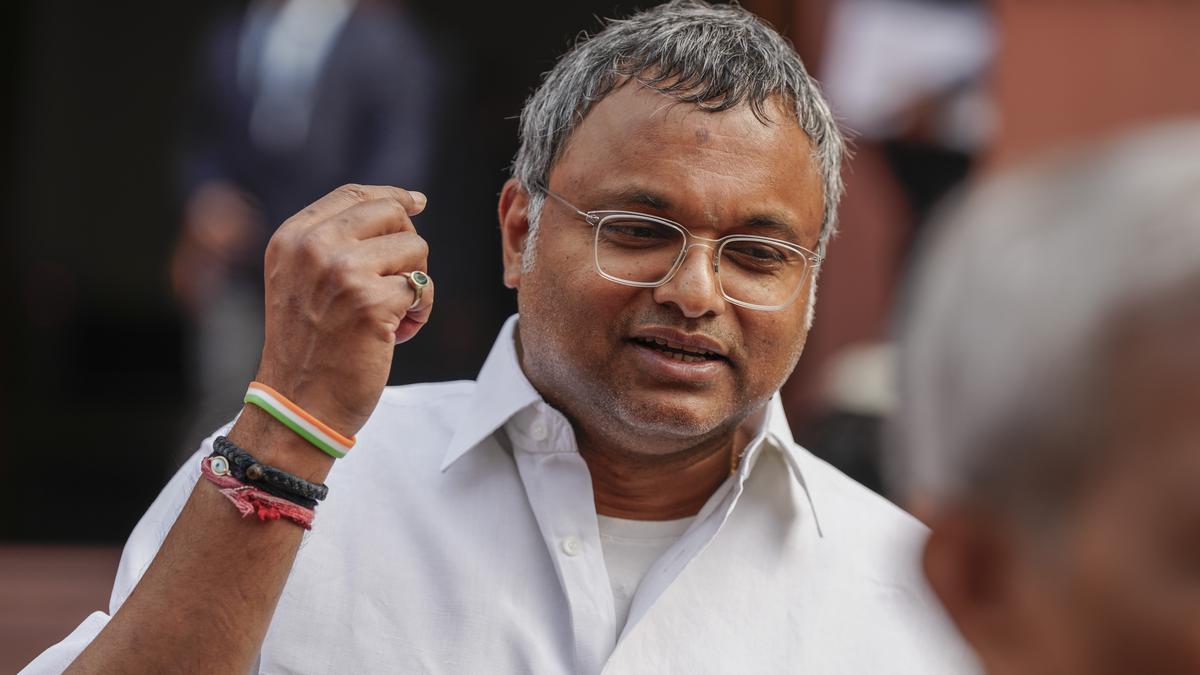
Chinese visa case | Karti Chidambaram calls ED probe 'fishing and roving' inquiry
The Hindu
The federal agency had first asked the 52-year-old legislator from Sivaganga constituency in Tamil Nadu to depose before the investigating officer of the case on December 12 in Delhi. After the MP cited his engagement in the ongoing Parliament session, the Enforcement Directorate (ED) asked him to appear on December 16.
Congress MP Karti Chidambaram has sought exemption from appearing before the ED on December 16, on fresh summons issued to him in a money laundering case linked to issuance of visa to some Chinese nationals in 2011, stating that the probe was a "fishing and roving" inquiry and that he required time to collect documents.
The federal agency had first asked the 52-year-old legislator from Sivaganga constituency in Tamil Nadu to depose before the investigating officer of the case on December 12 in Delhi. After the MP cited his engagement in the ongoing Parliament session, the Enforcement Directorate (ED) asked him to appear on December 16.
Also read | Chinese visa case: CBI conducts searches at Karti Chidambaram’s house
The 2022 ED case pertains to allegations of ₹50 lakh being paid as kickbacks to Mr. Chidambaram and his close associate S. Bhaskararaman by a top executive of Vedanta group company Talwandi Sabo Power Ltd. (TSPL), which was setting up a power plant in Punjab, according to the Central Bureau of Investigation (CBI) FIR.
The money laundering case stems from the CBI complaint.
Mr. Chidambaram, through his lawyer, has sent an around 100-page reply to the investigating officer of the case appending his election affidavit, Income Tax return, details of bank accounts and immovable assets while he sought exemption from appearance on Saturday as well as time to furnish all the documents sought by the agency.
It was not immediately known if the ED considered his plea.













